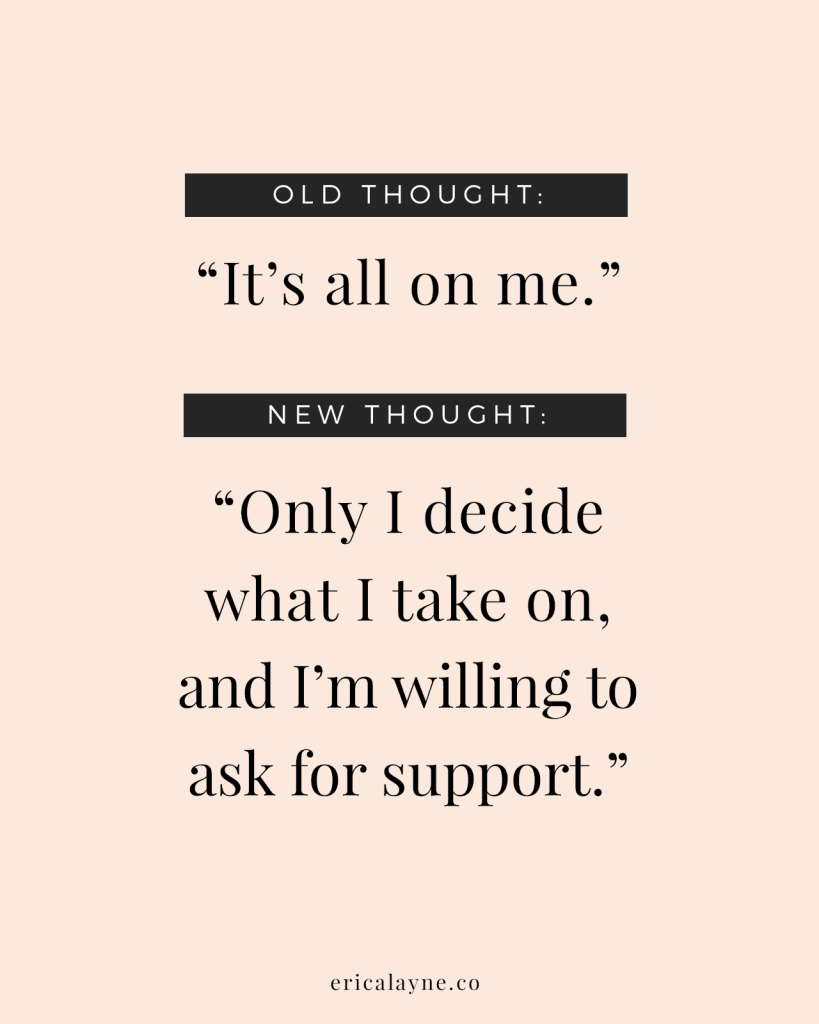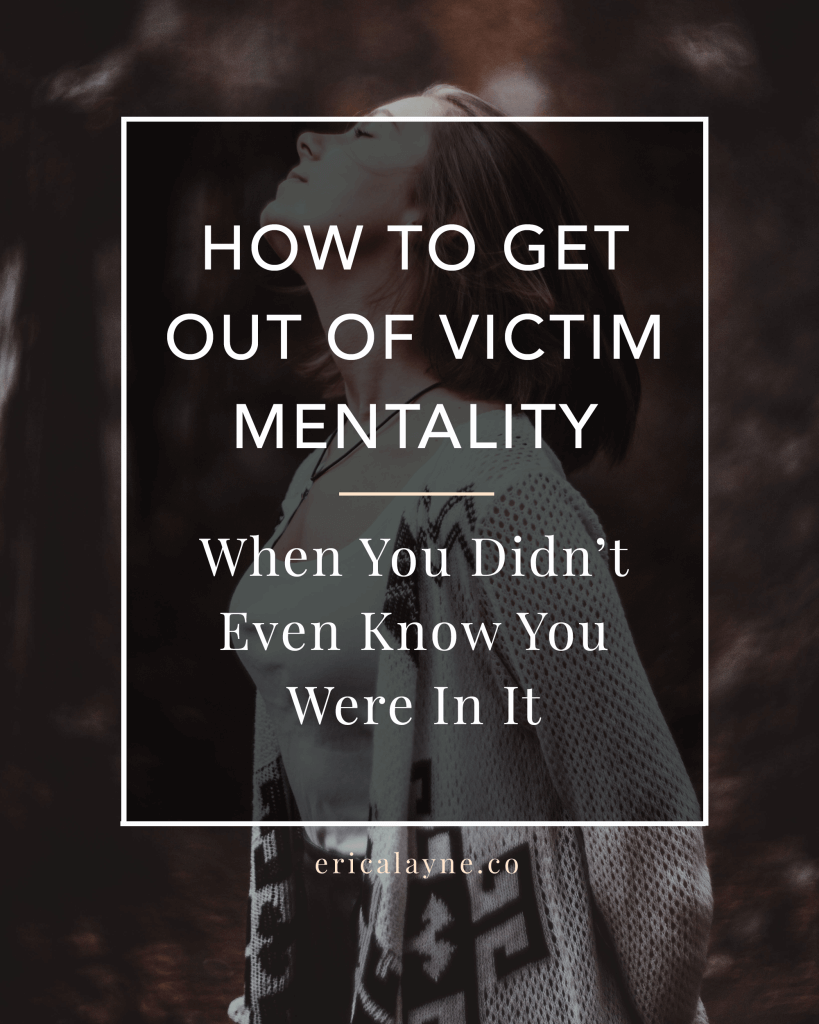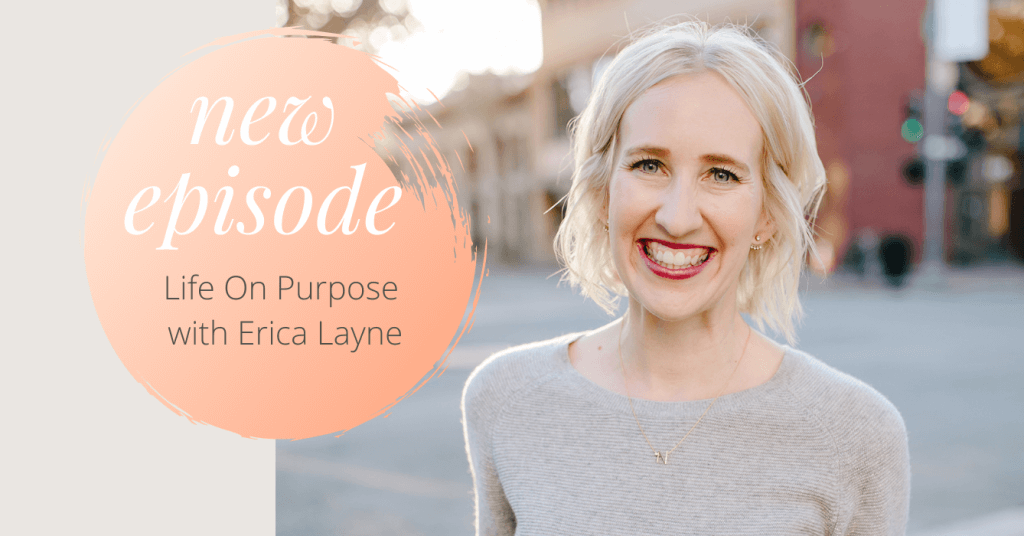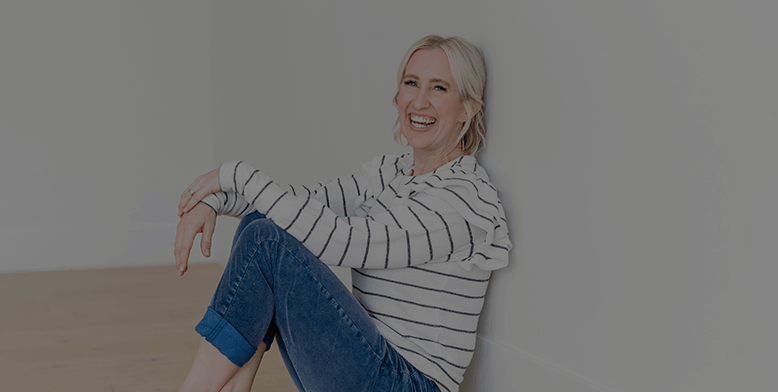I used to feel helpless.
Not all of the time. But a lot more often than I do now.
Sometimes in my mind, I pictured myself as a caged little bird. Sure, I lived in a lovely cage, with a lovely little bird family inside of it with me. But my life still felt a bit like a cage. I could just sense it.
Eventually, I learned that the cage was largely of my own making. I built it, one stake at a time with thoughts and beliefs that put me in a disempowered position.
I never would have characterized myself as someone with a victim mentality, which is generally defined as believing that you’re a victim of your circumstances with no control over what happens to you.
I didn’t think anyone was out to get me.
I knew there were a thousand things in my life that I did have control over.
I could see lots of good in the world around me.
But still… that caged feeling persisted. A touch of helplessness here, and a touch of powerlessness there…
Those feelings came from my thoughts—sneaky little thoughts that felt so true that it took me years before I realized they were optional. And after doing a hundred one-to-one coaching sessions this year, I’ve learned that it’s not just me. SO many of us have victim mentality creeping in without us even realizing it.
Here are seven subtle ways victim mentality is sneaking in—and how to send it packing!

7 Subtle Ways Victim Mentality Is Sneaking Into Your Life
1. “It’s all on me.”
If there’s an area of your life where the balance is skewed, the “it’s all on me” mentality can so easily sneak in.
It might be raising your kids or keeping the household afloat. It might be running your business or covering your family’s expenses.
Whatever it is, when you think the thought—“It’s all on me”—what do you feel?
I personally feel a mixture of pressure and loneliness. And I don’t know about you, but when I feel pressured and lonely, I want to escape those feelings as fast as humanly possible! Some days I might launch myself into productivity to distract myself, and other days, I might launch myself into Netflix. 😉 I’m not going to open my eyes to what other people are contributing, and I’m definitely not going to reach out for more support.
Ultimately, I’ll reaffirm my belief that it’s all on me.
The next time you notice yourself thinking this or saying it to a friend, stretch your brain a little by asking yourself questions like these:
- Is it really all on me? As in, could that be proven in a court of law?
- Who else shares the load with me?
- What does my partner do that I’m not seeing?
- How can I share the load more with the kids (or co-workers, friends, etc.)?
- Where else do I get support?
- Who can I ask for more support?
- What can I let go of?
- How else can I lighten my load?
In a recent coaching session, one of my beautiful clients said a variation of “it’s all on me.” While talking about her family, she said, “They’re putting everything on me.”
It CAN feel like our people put things on us. Like they’re piling on the to-do’s and responsibilities until we buckle under the weight.
But no one can PUT anything on you unless you choose to take it on. You always have choice.
Old, disempowered thought: “It’s all on me.”
New, empowered thought: “*I* decide what I take on, and I’m willing to ask for support.”

2. “No one else does it as well as I do.”
- No one loads the dishwasher as well as I do.
- No one cooks as well as I do.
- No one does {this certain aspect of the business} as well as I do.
- No one takes care of the kids as well as I do.
The second, often unvoiced part of this thought is—“…So it has to be me.”
Hello, bird cage! Can you see what a disempowered position that puts you in?
It has this sneaky way of making it sound like you’re complimenting yourself (“I do it so well!”), but the end result is that you trap yourself. You’re the only one who can do it.
Old thought: “No one else does it as well as I do.”
New thought: “I’m willing to let things be done differently since it means not doing everything myself.”
3. “I don’t know how.”
When you tell yourself you don’t know how to do something—that it’s too complicated, too technical, too inventive, etc.—you block yourself from your own creative thinking. You literally shut down your willingness and ability to figure it out.
You put yourself in the backseat of your own life.
Old thought: “I don’t know how.”
New thought: “I don’t know how YET. But I can figure it out.”
4. “I don’t have a choice.”
Other variations:
- “I’m stuck.”
- “I don’t have any options.”
- “I feel like I’m on a hamster wheel with no way to get off.”
- “I can’t change this.”
Believing you don’t have a choice is like creating your own self-fulfilling prophecy. If—over and over—you tell yourself that you’re stuck, you won’t see the options that are actually there.
What if instead you challenged your own assumptions, pushed yourself to see creative solutions, burned everything you knew to the ground, and started again?
Old thought: “I don’t have a choice.”
New thought: “I have a hundred options, and I’m opening my eyes to them.”
5. “If I don’t make this work, who will?”
This one has a similar flavor to #2: “No one does it as well as I do.” Sometimes making yourself the hero also traps you into being the victim. All of the responsibility falls on you.
This is how I like to push on this concept with my clients:
- Is your way the only way?
- Is your way for-sure, without-a-doubt the BEST way?
- Is it possible that things could work out differently than you’re picturing and still be okay?
- Is it possible that NOT making things work could actually be better? That you and the people in your life could experience things that they might grow from?
Old thought: “If I don’t make things work, who will?”
New thought: “It’s okay if things don’t ‘work.’ In fact, it might even be better.”
Do you struggle with this? More here: The Hidden Cost of Being a Fixer (+ How to Quit)

6. “I can’t catch a break.”
What feeling does this belief bring up for you? Defeat? Helplessness? Hopelessness?
And what actions do you typically take when you’re feeling defeated, helpless, or hopeless? Are you able to show up as your highest self when you’re believing that things are stacked against you? (Probably not!)
The opposite belief to “I can’t catch a break” might be “I make my own breaks,” but that feels like too big of a leap to me. Our brains won’t latch on to thoughts they can’t believe.
So how about a gentler shift? If you currently believe that you can’t catch a break, try simply opening yourself up to the good around you. It might be as small as a hug from your kid or the sound of birds when you first step out of your house in the morning. But the more good you look for, the more good you’ll find—and the more good you’ll create.
Old thought: “I can’t catch a break.”
New thought: “I will look for all the good in my life.”
7. “I try so hard, and it’s never enough.”
Recently, one of my clients was telling me about an interaction with her daughter, and she ended with this sentence: “I try so hard, and it’s never enough.”
I instantly felt my stomach bottom out, because I know that feeling. That thought has crossed my mind a hundred times.
**
Who are you letting tell you that it’s not enough? And do you want to keep using that voice as your metric?
YOU are the only person in your life who gets to decide what’s enough. You’re your own authority.
Old thought: “I try so hard, and it’s never enough.”
New thought: “*I* decide what’s enough; I don’t wait for other people to decide that for me.”

More from Episode 45 of “Life On Purpose with Erica Layne”
Here’s what else you can hear in the latest episode of the podcast!
- Self-Care Spotlight: A segment where I remind you not to neglect the person you spend all of your time with—you! Today I want to share someone with you who I just LOVE and thought you might too. Margaret Ann Powell is a hormone, thyroid, and gut nutritionist. She talks about all the holistic wellness practices that fascinated me: cold and hot therapy, red light therapy, lifting weights, ancestral eating. If you’re interested in holistic health, check out @margaratannpowell on Instagram!
- The Authenticity Calendar: It may be past the new year, but it’s not too late to start The Authenticity Calendar! Because the calendar isn’t dated with a year, it can be started at any point in the year and reused year after year! If you’ve never seen it before, The Authenticity Calendar contains 365 quotes and affirmations to inspire you to live with more purpose, authenticity and joy every day. It displays BEAUTIFULLY on a desk, your bedside table, or the heart of your home.
Listen to the full episode in your favorite podcast app, or in the audio player below, and be sure to hit follow!
Apple Podcasts | Google Podcasts | Spotify | Overcast | Stitcher
Show produced by Astronomic Audio
xo!






While I understand (and appreciate) the list and guidance on how to change our thinking I struggle with the “shift” offered for #7. Mainly because so much of life, and what we do in life, is decided by others. Making grades, passing classes, passing tests (including driving tests), making a team, getting playtime on a team, getting into college/ trade school , getting hired (and fired) are all defined and decided by someone else. I’m sure the list is longer and I missed things. Help me understand how to manage #7.